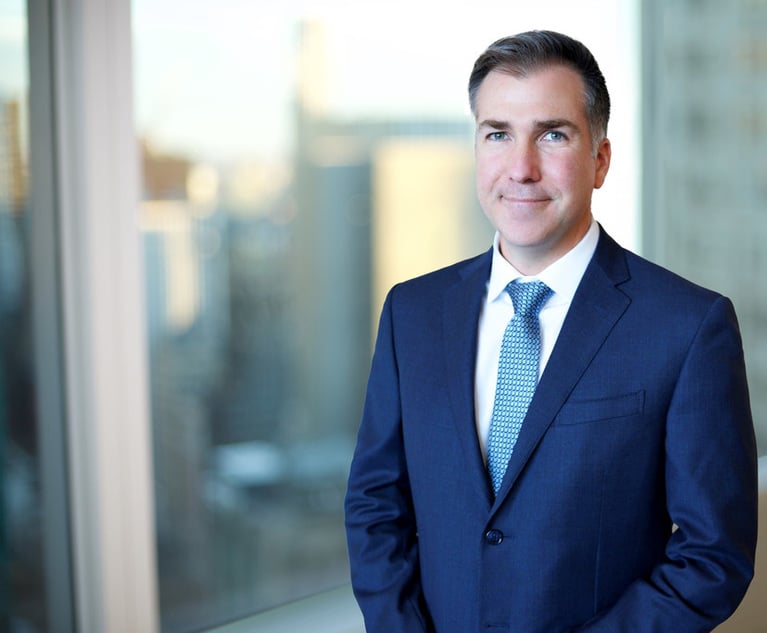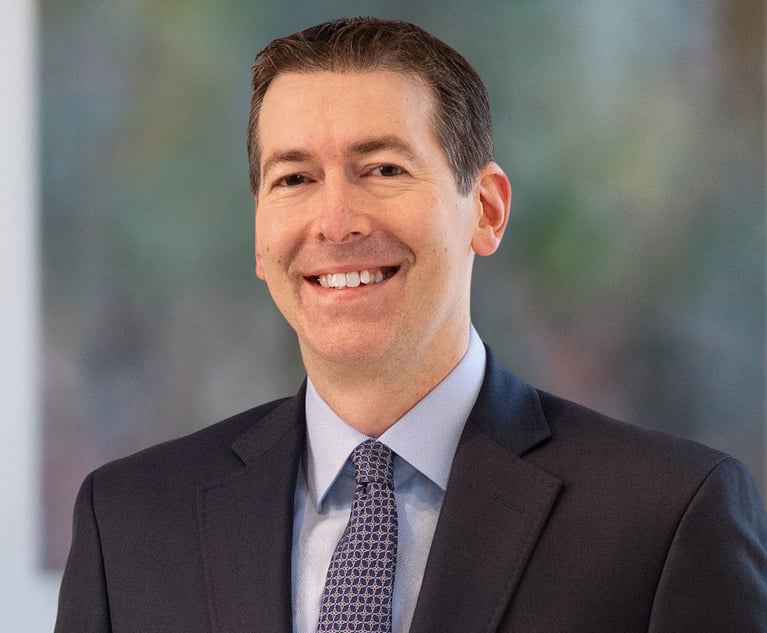Same Evidence, but New Challenges for Prosecutors in Silver Retrial
Jury selection is set to begin in the second bribery trial of former New York State Assembly Speaker Sheldon Silver, as prosecutors are expected to present much of the same elements of a case that in 2015 won them a conviction on more than seven counts.
April 13, 2018 at 03:50 PM
6 minute read

Jury selection is set to begin in the second bribery trial of former New York State Assembly Speaker Sheldon Silver, as prosecutors are expected to present much of the same elements of a case that in 2015 won them a conviction on more than seven counts.
But this time, the pressure will be on the government—which of late has had a mixed record on prosecuting public corruption—to adjust its case to adhere to a new, more stringent standard for instructing juries on what counts as an “official act” under federal bribery statutes.
Silver, formerly a political institution in New York who represented parts of Lower Manhattan as a Democrat for almost four decades until his resignation in February 2015, was convicted in November 2015 of four counts of honest services fraud, two counts of extortion and money laundering.
Silver allegedly ran two kickback schemes that netted him some $5 million in referral fees.
In the first alleged scheme, Silver is accused of diverting state grant money to Robert Taub, a Columbia University oncologist who referred patients to personal injury boutique Weitz & Luxenberg, where Silver was of counsel. Silver allegedly received $3 million in legal referral fees from the scheme.
In the second alleged scheme, Silver referred developer Glenwood Management to real estate law firm Goldberg & Iryami for a tax-rate appeal, and is accused of returning the favor by pushing through favorable tax and rent regulation legislation in Albany.
U.S. District Judge Valerie Caproni of the Southern District of New York, who presided over the first trial, will handle the retrial, which is set to begin on April 30 and is expected to last four to six weeks.
The do-over in the corruption case against Silver, who has pleaded not guilty to the charges against him, will likely include much of the same evidence and witnesses presented in the first trial; Taub, who testified in the first trial under a nonprosecution agreement, is again expected to testify as a key witness for the government, but prosecutors told Caproni that Taub is suffering from health issues and may require surgery, and thus the start of the trial was delayed until April 30.
Silver has switched out his defense team for the second go-round, replacing Joel Cohen of Stroock & Stroock & Lavan and Steven Molo of MoloLamken, who represented him in his first trial and in his successful appeal, with an Allen & Overy team led by partner Michael Feldberg.
Silver's defense team also includes Allen & Overy attorneys Andrew Rhys Davies, Michael Westfal and Rebecca Ann Naeder.
Assistant U.S. Attorneys Tatiana Martins, Daniel Richenthal and Damian Williams are prosecuting the case.
While the government was victorious in Silver's first trial, in 2016 the U.S. Supreme Court issued a ruling that imposed a tougher standard on prosecuting elected officials for alleged corruption, which the U.S. Court of Appeals for the Second Circuit cited in its decision last year to throw out Silver's conviction.
The high court found that the jury instructions presented in the corruption trial for former Virginia Gov. Bob McDonnell provided an expansive definition of what constitutes an official act—setting up meetings, hosting events or calling other elected officials doesn't count, the high court said—and threw out his honest services fraud and Hobbs Act extortion convictions.
The U.S. Supreme Court's definition gave a glimmer of hope to defendants accused of public corruption. Among the corruption convictions upset was that for former New York Senate Majority Leader Dean Skelos, R-Nassau, who was accused of using the powers of his office to secure no-show jobs for his son, Adam Skelos.
Skelos is expected to be retried on June 18. In January, the U.S. Supreme Court declined to take up Silver's case for review.
While the onus will be on the prosecution in Silver's second trial to focus its case on conduct that clears the McDonnell standard, the Second Circuit said in its ruling that there was sufficient evidence in the first round for a conviction, said Joshua Colangelo-Bryan, of counsel to Dorsey & Whitney, who is not involved with the Silver case but who is also representing a former New York state politician who fell from a high post: former state Sen. John Sampson, D-Brooklyn, who for three years was majority leader, and who was sentenced to prison last year for obstruction and lying to the FBI regarding an alleged foreclosure sale embezzlement scheme.
Daniel R. Alonso, the managing director of Exiger and a former prosecutor who has worked in the Manhattan District Attorney's Office and the U.S. Attorney's Office for the Eastern District of New York, said it's relatively uncommon for the prosecution to lose on retrial.
What may also put the wind at the government's back in this case, Alonso said, is the fact that prosecutors generally already know which witnesses will take the stand and how they will come across.
“Once you do that, it's like the greatest focus group in the world,” Alonso said.
But on the other hand, Alonso said, Silver's defense team may be given small advantages in that they will already have discovery materials produced for the first trial—and thus they won't be left waiting until the eve of trial for discovery—and will have access to the transcripts of sworn testimony from the first trial.
“If the witness deviates from prior statements you can expect a good defense attorney to pounce on that witness,” he said. Alonso is not involved with the case.
Colangelo-Bryan said that while a tighter definition of what qualifies as an official act may take some evidence off the table for the prosecution, he does not see the new standard as a silver bullet for defendants—prosecutors have had time to adjust their approaches to corruption cases since the U.S. Supreme Court announced its decision in McDonnell. Ultimately, he said, each case boils down to specific facts.
“The defense is not going to be able to rely solely on an argument that there were no official acts but instead focus on other things, such as whether or not there was an illegal quid pro quo,” he said.
This content has been archived. It is available through our partners, LexisNexis® and Bloomberg Law.
To view this content, please continue to their sites.
Not a Lexis Subscriber?
Subscribe Now
Not a Bloomberg Law Subscriber?
Subscribe Now
NOT FOR REPRINT
© 2025 ALM Global, LLC, All Rights Reserved. Request academic re-use from www.copyright.com. All other uses, submit a request to [email protected]. For more information visit Asset & Logo Licensing.
You Might Like
View All
Attorneys ‘On the Move’: O’Melveny Hires Former NBA Vice President; MoFo Adds Venture Capital Partner
5 minute read
Orrick Hires Longtime Weil Partner as New Head of Antitrust Litigation

Ephemeral Messaging Going Into 2025: The Messages May Vanish but Not the Preservation Obligations
5 minute read
Trending Stories
- 15th Circuit Strikes Down Law Barring Handgun Sales to Adults Under 21
- 2Commonwealth Court Overturns Zoning Board’s Denial Based on Merger Doctrine and Unnecessary Hardship Questions
- 3De-Mystifying the Ethics of the Attorney Transition Process, Part 2
- 4Being a Profession is Not Malarkey
- 5Bring NJ's 'Pretrial Opportunity Program' into the Open
Who Got The Work
J. Brugh Lower of Gibbons has entered an appearance for industrial equipment supplier Devco Corporation in a pending trademark infringement lawsuit. The suit, accusing the defendant of selling knock-off Graco products, was filed Dec. 18 in New Jersey District Court by Rivkin Radler on behalf of Graco Inc. and Graco Minnesota. The case, assigned to U.S. District Judge Zahid N. Quraishi, is 3:24-cv-11294, Graco Inc. et al v. Devco Corporation.
Who Got The Work
Rebecca Maller-Stein and Kent A. Yalowitz of Arnold & Porter Kaye Scholer have entered their appearances for Hanaco Venture Capital and its executives, Lior Prosor and David Frankel, in a pending securities lawsuit. The action, filed on Dec. 24 in New York Southern District Court by Zell, Aron & Co. on behalf of Goldeneye Advisors, accuses the defendants of negligently and fraudulently managing the plaintiff's $1 million investment. The case, assigned to U.S. District Judge Vernon S. Broderick, is 1:24-cv-09918, Goldeneye Advisors, LLC v. Hanaco Venture Capital, Ltd. et al.
Who Got The Work
Attorneys from A&O Shearman has stepped in as defense counsel for Toronto-Dominion Bank and other defendants in a pending securities class action. The suit, filed Dec. 11 in New York Southern District Court by Bleichmar Fonti & Auld, accuses the defendants of concealing the bank's 'pervasive' deficiencies in regards to its compliance with the Bank Secrecy Act and the quality of its anti-money laundering controls. The case, assigned to U.S. District Judge Arun Subramanian, is 1:24-cv-09445, Gonzalez v. The Toronto-Dominion Bank et al.
Who Got The Work
Crown Castle International, a Pennsylvania company providing shared communications infrastructure, has turned to Luke D. Wolf of Gordon Rees Scully Mansukhani to fend off a pending breach-of-contract lawsuit. The court action, filed Nov. 25 in Michigan Eastern District Court by Hooper Hathaway PC on behalf of The Town Residences LLC, accuses Crown Castle of failing to transfer approximately $30,000 in utility payments from T-Mobile in breach of a roof-top lease and assignment agreement. The case, assigned to U.S. District Judge Susan K. Declercq, is 2:24-cv-13131, The Town Residences LLC v. T-Mobile US, Inc. et al.
Who Got The Work
Wilfred P. Coronato and Daniel M. Schwartz of McCarter & English have stepped in as defense counsel to Electrolux Home Products Inc. in a pending product liability lawsuit. The court action, filed Nov. 26 in New York Eastern District Court by Poulos Lopiccolo PC and Nagel Rice LLP on behalf of David Stern, alleges that the defendant's refrigerators’ drawers and shelving repeatedly break and fall apart within months after purchase. The case, assigned to U.S. District Judge Joan M. Azrack, is 2:24-cv-08204, Stern v. Electrolux Home Products, Inc.
Featured Firms
Law Offices of Gary Martin Hays & Associates, P.C.
(470) 294-1674
Law Offices of Mark E. Salomone
(857) 444-6468
Smith & Hassler
(713) 739-1250






